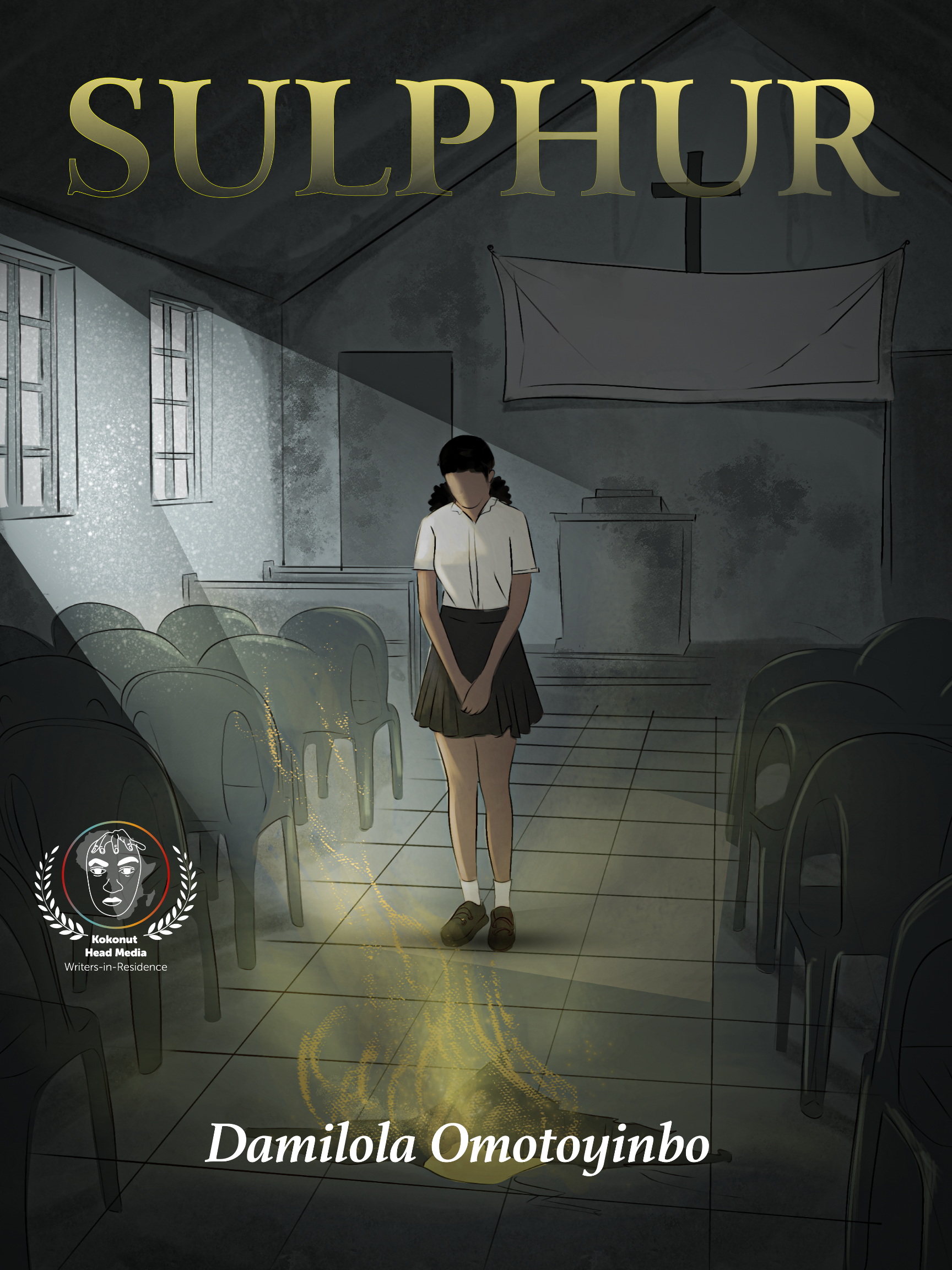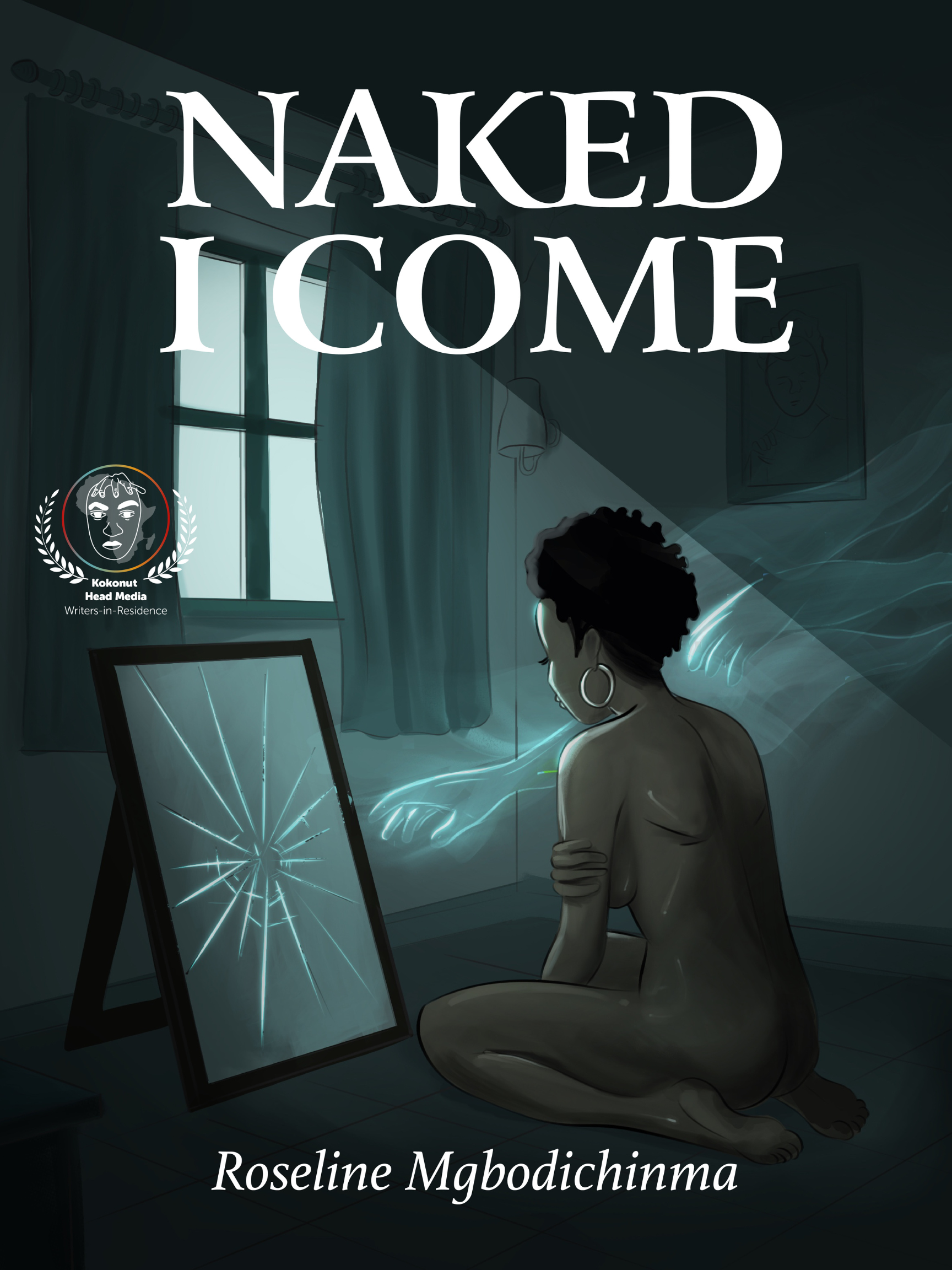Our Mother Modesta
The harsh sun that shone over the east in March was the reason Modesta did not die in her sleep. After the nightmare that plagued her that night, she packed her bags and went to meet her pregnant daughter, the following day who was just about to give birth.
It was a hot and humid season, with heat rashes crowding the surface of everyone's bodies. The neighbourhoods were both hot and unsafe. People were kidnapped or beaten in broad daylight. Thieves broke into houses and stole everything, including ice water, from refrigerators. The thirst on the streets was palpable.
Modesta’s mission was to ensure her future grandbabies were shielded from evil, the weather, and the harsh realities of their current world. On the news, there were broadcasts about strange things happening in the city. She lived in the village, where she knew exactly who her village people were and how they operated. If her crops started to die suddenly, it meant the old woman she forgot to greet on her way back from church had caused it. Growing her crops back meant taking Hollandis fabric or foodstuff to the old woman as a peace offering. If she started sneezing uncontrollably, someone at the market might have put something in her snuff to spite her. If she went missing, it was easy to ransack the small village and find her, as the village trees had ears.
In the city, figuring out the root of one’s suffering was hard. Most people masked their callousness in white collars. They were heathens in heels, parading their workplaces and the streets as if they had not just altered somebody’s destiny at midnight—witchcraft masked as civilisation.
Modesta rushed to the city with an urgency she couldn’t explain. The dream had unsettled her—a strange, haunting vision. She saw children tumbling into a deep well, their cries swallowed by darkness. In the dream, she climbed down, pressing her hands and feet against the rough walls, becoming a human bridge to stop more from falling. Just as she reached for her escape, a faceless man—his build strangely similar to her late husband, Akanu—grabbed and twisted her hands until she slipped, rolling endlessly into the deep. The heat jolted her awake.
Modesta’s pension as a community school teacher and the money she received from her committee of friends and well-wishers when her husband, Akanu, passed remained untouched. She lived on the things she grew from the ground and saved every penny. The coming of her twins felt like an alignment, as if her chi had made her save her wealth all the while for them.
Although grateful, Augusta couldn’t help but worry that her mother was stretching herself too thin. On top of her duties as a full-time grandmother, Modesta rented a two-bedroom self-contained apartment for Augusta and her husband to raise their children. She despised the cramped, intrusive nature of the low-cost housing they had been living in. It was nothing like the village home where she had raised Augusta and her siblings—a house with spacious rooms, a vast compound for children to play in, and nature all around. Akanu had found that land and built upon it, and until the day he died, no one ever came to claim it or demand payment. But in the city, there were no abandoned lands to claim.
As Augusta and her husband carried in their small couch and medium-sized Mouka foam to the new house, Modesta sprinkled anointing oil on the concrete floors to ward off any incoming or existing evil spirits.
“Two-factor authentication!” Modesta said while handing Augusta a bottle of Goya extra virgin olive oil.
“Even when I am gone, sprinkle it across the house. Evil eyes must not see us,” she said.
“So, because of this oil now, imaginary spirits will not see us, eh? Who brainwashed—”
“Shut up there, my friend! What do you know?” Modesta was yelling.
She was trying to safeguard her family from evil eyes, and there Augusta was, practically calling her foolish. Augusta believed in nothing—not herself, people, or even the supernatural. The only thing she had ever genuinely succeeded at was giving birth, and even that had shocked her. She had grown so accustomed to failure—in school, at work, in business—that she was convinced she would fail at pregnancy, too. She never imagined she would carry her pregnancy to term, let alone deliver it.
Her womb did not fail her. Through pain beyond what her mind could fathom, she pushed—not one, but two lives into the world. None of her siblings had dared to sacrifice their bodies for childbirth, and for that alone, she became Modesta’s favourite child.
“I have bought a small AC and clothes for my grandbabies,” Modesta said while washing a sink full of feeding bottles just after her argument with Augusta.
“Thank you,” Augusta mumbled from the kitchen corner.
It had been two full years, many months more than is customary for Omugo, and Modesta was ready to leave. She had set them up and was planning to go back to the village, where she would monitor them with prayers. Augusta did not want her mother to leave. Who would change diapers in the middle of the night, cook her ji mmiri oku, and wash her clothes?
Had Akanu not died in a ghastly bike accident, he would never have allowed his wife to stay away for more than three months—let alone two full years for Omugo. Now, he visited her often in dreams, pleading for her to hurry and join him. He missed her. He missed the warmth of her body, the way sleeping beside her steadied his temperature. Without her, he was simply always cold. All he had left were dreams—where his grip on her felt slippery and fleeting. He wanted more.
Some nights, she woke breathless and screaming, her wrist sore from the force of his grip. The dreams were less frequent in Augusta’s home. Akanu only visited her once to say the twins looked like him. He was happy that Modesta had gotten two grandchildren at once; this was more than enough to him. She had seen them with her own eyes and cradled them through long days and longer nights. What more could a woman in her seventies possibly ask for?
Modesta was sad to leave Augusta, but she missed the comfort of her home in the village. Her farm needed tending, there were village meetings to attend, and her porch was collecting dust. She wanted to give Augusta and her husband the chance to experience the full breadth of parenthood.
The heavy rain that fell in the east the morning Modesta chose to travel left everyone speechless with joy and most confined to their homes. It was August, and the rainy season had begun. The streets were simply flooded, muddy and quiet, save for heavy raindrops flogging the roads. Augusta was happy about the downpour. For one, it would make the house cooler and save her some electricity money, as she constantly had to put on the Air conditioner for her babies. Two, it meant her mother would postpone her trip.
“Mama, won't you leave this journey until after this season?” Augusta asked her already determined mother, who had zipped her Echolac bag and opened a large umbrella, ready to go.
“No, I must reach the village today,” She said firmly.
“The rods are flooded. You sure say park people go dey?”
“Yes, o. I need to be in the village today. I have missed two August meetings, " she said, adjusting her wrapper. Nothing Augusta said to her mother was strong enough to dissuade her from going. Augusta knew better than to continue arguing with Modesta, so she put on her clothes, chartered a taxi, and escorted her to the park.
The park was not as busy as it typically used to be. No hawkers were shouting about their goods or area boys hustling for passengers. Only one bus was loading, with passengers already seated in the vehicle, quiet and dressed in dull colours, black or pale grey. Modesta was decked in an orange Ankara blouse and blue wrappers, beaming with smiles and ready for the three-hour journey back to her village. The driver was sitting by the bench, chewing sticks in one hand, wads of naira notes in the other.
“You no get conductor?” Modesta asked.
“No,” he replied simply.
“Why now? you no suppose do everything by yourself,” Augusta queried.
“Bus don full, na you be the last passenger,” the driver said. Augusta and her mother peeked inside the oddly quiet bus, and truly, just one seat was left. The bus had filled all of a sudden. The middle seat at the back was what was left.
“Are you sure you can sit inside that cramped place?” Augusta asked.
“Yes now, I will manage it. Is it not just to sit down.”
“Let's wait for the second bus mama, this one dey somehow,”
“Na only me dey load today,” the driver said hurriedly, looking Augusta in the eyes as if to warn her to refrain from speaking. Modesta gave him her bags to put in the boot, ready to be seated in the bus. The hem of her wrapper was already soaking from the splashes of rainwater. Augusta was uneasy. She stood at the side of the car, talking to Modesta and asking her to be patient.
“Please go home quickly. I'll call you once I reach.”
“Okay mummy, Ije Oma,” She said, still standing.
“Una well done o!” Modesta greeted her fellow passengers as she got into the bus and squeezed between an old man and a woman whose face was covered in a scarf, save for her white pupils.
They were both looking outside the bus window, blank-faced and silent, while Modesta was stiff in the middle, unable to move left or right.
When Augusta saw the bus leave and drive onto the road, she opened her Whatsapp, went to their mostly quiet family group chat and typed,
“Mummy has gone. The car's plate number is EBO45NGN. She should be reaching Umuachi in about three hours.”
Her siblings, Ignatius and Perpetual, gave a thumbs up as expected—no comments as usual. Modesta's children did not grow up together; what kept them bonded was blood and duty. Ignatius and Perpetual left home before Augusta was born, she only spoke to them on the phone and saw them like a leap year, once every four years. They were all just strangers bound by blood. Akanu himself was a distant father but a present husband. The only love his children felt from him trickled through Modesta. He loved her and she translated this love to them. He never really wanted to be a father, but Modesta insisted and made sure she turned their nights of pleasure into offspring. She never demanded more than that from him; according to her, his seed was enough, and she could handle the rest.
Nobody on the bus, apart from the driver, spoke to Modesta. She found the whole vehicle odd, but it was raining, the weather was gloomy, and she was going to sleep throughout the journey. She was going to endure their silence. Who needed their unwholesome conversations anyway? Mosdesta said her prayers, anointed her head with what was left of the olive oil and dozed off. When she woke up, she was alone in the vehicle., Peeking outside the car window, she noticed the two people beside her had changed their clothes. They were now dressed in a white tunic, everyone was, including the driver. They all seemed to mind their business, no words, just glances. When Modesta asked why everyone had stopped here instead of heading to Umuachi, nobody answered her.
Modesta wailed and bawled her eyes out. All routes led her back to white and white assembly. There was truly no way out. Each day, a new batch of people joined, many of whom were confused like her, until they suddenly changed to white and became mute. Modesta continued to roam endlessly and aimlessly, her body weak and ready to emerge from the blouse and wrapper she was trying. She had been driven into the land of the dead.
Parenthood hit Augusta and her husband in full force as soon as Modesta left. Managing two screaming toddlers was no small feat. Between diaper changes and feeding, they forgot to call her and find out if she arrived safely. The next morning, Augusta picked up her phone to see a message on the group. Ignatius was asking if their mother had arrived because her phone was switched off. Augusta did not understand the question. Her mother was supposed to be in the village. Augusta dialled her mother’s number multiple times, but true to Ignatius’ words, it was switched off. Her husband suggested she go to the park to see if the bus that carried her had returned. Augusta went to the park, to their office and all their branches in the city, but the story was the same. No park opened on the day Modesta left. No bus carried any passengers that day. Augusta was beginning to lose her senses. The group chat was buzzing for the first time, with her brother and sister asking her a series of questions.
Are you sure Mama left your house?
Did you people really go to the park?
Where is Mama?
Are you and your husband serious at all?
Where is our mother Modesta?
Where did you people keep her?
Augusta watched her mother enter the yellow, newly painted JAH IS GOOD bus. She spoke to the driver. She remembered that her mother paid the fare, smiled at her and relaxed as the bus zoomed off.
•••
Modesta made the news. The headlines read;
Woman Missing After Entering Disappearing Bus
or
Grandmother Gone Missing After Omugo
It was all over social media, with people suggesting that Augusta and her husband used their mother for rituals. If she did not have a relationship with her siblings before, Modesta’s disappearance made it worse. Augusta was the last person to see their mother, and even though they somehow believed Augusta would not harm their mother, they still needed to suspect someone, and they chose her. Within a day, Augusta's breast milk had dried. She was already losing weight rapidly, staring blankly into the walls of their apartment as she screamed her mother's name.
The days after were worse. Each sibling grieved in their isolated way, unsure of how to make sense of their mother's sudden disappearance. Augusta began to see Modesta in dreams. In one dream, she sat at their family home, her hands busy peeling cassava in a basket while her face remained eerily still. When she asked her what she was doing, she didn't respond—just stared at her, her lips curled into a tight, strained smile. She started whispering something, her words lost in the air with no sound, but Augusta could tell—she was now pleading. Augusta woke up, gasping for air, the sheets damp from her leaking breasts. She missed Modesta's hands—those motherly palms that had soothed her babies, wiped their poop and carried them through the first months of their lives. She missed her voice, always loaded with warning.
That night, Modesta appeared in her dream. Her legs were muddy and wet, as usual. This time, Augusta grabbed her mother’s hand firmly and was unwilling to let go,
“Mama, please, where are you?”
"Bury me," Modesta begged, her voice audibly echoing over the halo sounds of voices and a bus engine sound.
“How mama, why?”
“Please, I need to rest," She shouted. Bury me; our bus is not coming back.”
“Just tell me where you are, and I will bring you back,” Augusta begged.
“Please just bury me. They have driven the life out of me!"
Augusta woke up from this nightmare and told her husband.
“Mama is asking to be buried, she said simply.’’
“Wait, how? What do you mean?” Augusta did not answer.
That night was the last time she spoke to anyone. She was visibly shaken, her palms and fingers cool like rain. He did not ask her any more questions, he just cuddled her and dressed her up for the hospital. He knew that something in her brain had been altered. He called her siblings too, who broke down in ways he couldn’t witness, and they all began the burial arrangements. He was shaken, but he had to be the Man. All of Augusta’s children were paralysed by grief and uncertainty. It was going to be the first time all of them were gathering together in the same place, and it was to dig a grave and bury an empty coffin so that their Mother’s wandering soul could reach its destination.











